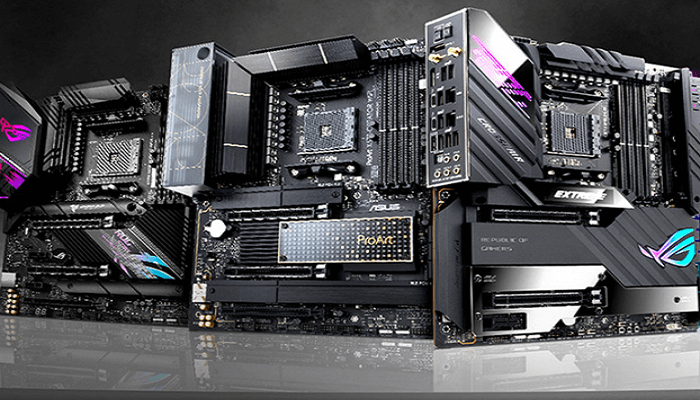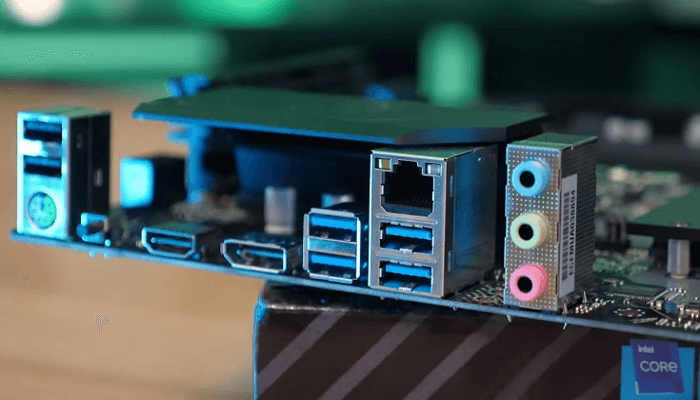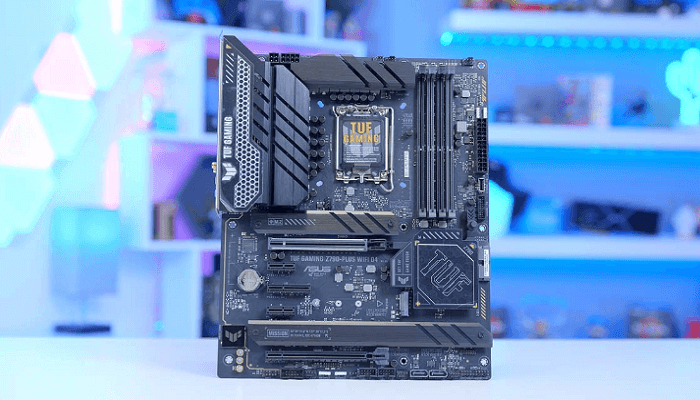Why Are Motherboards So Expensive – Motherboards are the backbone of any computer system, responsible for connecting all the internal components and peripherals together. However, the price of a motherboard can often be a significant barrier to building or upgrading a PC.
So why are motherboards so expensive? In this article, we will explore the various factors that contribute to the high price of motherboards.
The Basics of Motherboards

Before diving into the reasons why motherboards are so expensive, it’s essential to understand what a motherboard is and what it does.
A motherboard is a printed circuit board that connects all the components of a computer system, including the CPU, memory, storage devices, and peripherals such as keyboards, mice, and displays.
It acts as a communication hub, enabling data to flow between components and allowing them to work together.
The 11 Reasons Why Motherboards Are So Expensive

When it comes to building or upgrading a computer, one of the most significant expenses can be the motherboard.
While some computer components, such as storage devices or power supplies, have relatively stable and predictable prices, motherboards can vary greatly in cost, ranging from under $50 to well over $500.
But why are motherboards so expensive?
We explored 11 reasons why motherboards can have a higher price tag.
By understanding these factors, you can make informed decisions when selecting a motherboard that fits your needs and budget.
- Research and Development: Motherboard manufacturers invest heavily in research and development to ensure their products are compatible with the latest technologies, such as high-speed DDR5 memory and PCIe 5.0.
- High-Quality Components: Motherboards use high-quality components such as capacitors, resistors, and voltage regulators to ensure reliable operation, even under heavy loads.
- Advanced Features: Motherboards come with advanced features such as built-in Wi-Fi, Bluetooth, and Thunderbolt connectivity, which adds to their cost.
- Specialized Designs: Some motherboards are designed for specific use cases, such as gaming or overclocking, which requires additional engineering and testing.
- Limited Production Runs: Some motherboard models have limited production runs, making them rare and valuable to collectors, enthusiasts, and hobbyists.
- Brand Reputation: Motherboard manufacturers invest heavily in building their brand reputation, which can contribute to a higher price tag.
- Distribution Costs: Distributing motherboards worldwide incurs additional costs such as shipping, taxes, and import fees, which can add to the final price.
- Raw Material Costs: The raw materials used to manufacture motherboards, such as copper, gold, and silicon, are subject to price fluctuations, which can impact the final price.
- Competition: The motherboard market is highly competitive, with many manufacturers vying for market share. This competition can lead to higher prices, as manufacturers strive to differentiate their products from the competition.
- Third-Party Chipset Licensing: Motherboard manufacturers must license the use of chipsets from third-party companies such as Intel or AMD, which can add to the final cost.
- Economic Factors: Finally, economic factors such as inflation, currency exchange rates, and global supply chain disruptions can all impact the final price of motherboards.
FAQS:
While we have covered the 11 main reasons why motherboards can be expensive, many people still have questions and concerns about the pricing of motherboards.
In this section, we will address some of the most frequently asked questions about the cost of motherboards, providing additional insights and information to help you understand why motherboards are often priced higher than other computer components.
Are all motherboards expensive?

No, not all motherboards are expensive. Motherboards come in a range of prices, depending on their features, quality, and brand.
Why do some motherboards cost more than others?
Motherboards can vary in price due to differences in features, quality, brand reputation, and production volume.
Are expensive motherboards worth the price?
Whether an expensive motherboard is worth the price depends on your specific use case and requirements. For example, a high-end gaming motherboard with advanced features may be worth the investment for serious gamers.
Can I build a PC without a motherboard?
No, a motherboard is an essential component of any PC, responsible for connecting all the internal components and peripherals together.
Can I save money by buying an older motherboard model?
Yes, buying an older motherboard model can be a cost-effective way to build or upgrade a PC, as older models may have lower prices due to being replaced by newer technology.
Can I upgrade my motherboard without buying a whole new PC?
Yes, you can upgrade your motherboard without buying a whole new PC, but it may require additional upgrades to other components such as the CPU, memory, and storage devices to ensure compatibility.
How can I find the right motherboard for my needs?
To find the right motherboard for your needs, consider your budget, the specific features you require, and the compatibility with your other components. Research and comparison shopping can also help you find the best motherboard for your needs and budget.
Conclusion: Why Are Motherboards So Expensive
Motherboards are essential components of any computer system, responsible for connecting all the internal components and peripherals together. However, their high price can be a significant barrier to building or upgrading a PC.
The 11 factors that contribute to the high price of motherboards include research and development costs, high-quality components, advanced features, specialized designs, limited production runs, brand reputation, distribution costs, raw material costs, competition, third-party chipset licensing, and economic factors.
Understanding these factors can help you make informed decisions when selecting a motherboard that fits your needs and budget.
Related:
- Why Are Beats So Expensive
- Why is Cox So Expensive
- Why is Premiere Pro So Expensive
- Why Are Hard Drives So Expensive
- Why Are Mechanical Keyboards So Expensive
- Why is Audible So Expensive
- Why Are PC Parts So Expensive
- Why is Ram So Expensive
- Why is Windows So Expensive
- Why Are Graphics Card So Expensive
- Why is Ableton So Expensive
- Why is CASETiFY So Expensive